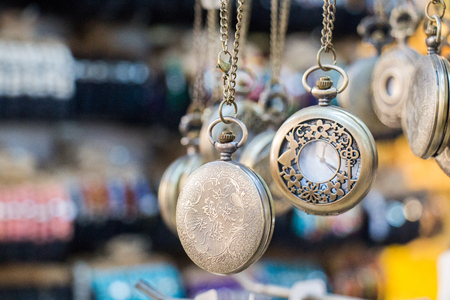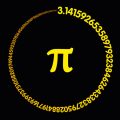Stars, Sceptres, and Scepticism: An Introduction to Astrology’s Cheeky Influence
Let’s be honest: if you’ve ever read a British literary classic and thought, “What on earth is this character waffling on about the stars for?”—congratulations, you’ve just stumbled upon one of the oldest and most persistent plot devices in Albion’s literary arsenal. From the medieval pageantry of Geoffrey Chaucer, who cheerfully plonked horoscopes into his tales alongside fart jokes and questionable pilgrim hygiene, to the velvet-draped stages where Shakespeare’s characters wax lyrical about planetary mischief, astrology has been that twinkly-eyed guest at Britain’s literary banquet—sometimes invited, occasionally gatecrashing, but always determined to have its say.
Astrology wormed its way into British classics like an opportunistic badger at a picnic, dodging the pointed sticks of sceptics and seducing poets with its celestial promises. Medieval mummers (the original influencers) relished a good planetary pun, while bardic banterers like Will Shakespeare himself could never resist blaming Mercury retrograde for their tragic misunderstandings. The result? A canon bursting with moonlit prophecies, star-crossed lovers, and kings who’d rather consult their horoscope than their advisors. So buckle up: we’re diving headlong into the merry chaos where fate meets farce, and the only thing more unpredictable than a comet is a British poet armed with an astrological chart.
2. Chaucer’s Starry-Eyed Pilgrims: Horoscopes on the Canterbury Road
Let’s take a brisk stroll (mind the mud) down the Canterbury road with Geoffrey Chaucer and his merry band of astrological enthusiasts—also known as the pilgrims from The Canterbury Tales. If you think horoscopes are just something your mate reads out while sipping her oat flat white, think again. In medieval England, astrology was practically the WiFi of its day: everyone relied on it, even if half the population didn’t really understand how it worked.
Chaucer’s Cosmic Banter
Chaucer had a knack for weaving star charts and planetary alignments into his tales, sometimes with a wink, sometimes with a nudge, and often with more than a bit of cheeky commentary about human folly. The Miller? Born under Mars—so naturally up for a scrap before last orders. The Wife of Bath? Venus all over: passionate, bold, and wouldn’t say no to another trip down the aisle if Jupiter was in the right mood.
Astrology by Pilgrim: A Handy Table
| Pilgrim | Astrological Influence | Classic Chaucerian Outcome |
|---|---|---|
| Knight | Mars & Jupiter | Noble quests, questionable luck with inns |
| Wife of Bath | Venus (obviously) | Six husbands and counting; saucy anecdotes galore |
| Miller | Mars (and maybe too much ale) | Brawls before breakfast; poetic licence abused |
| Pardoner | Mercury in Retrograde? | Smooth talker, but wallet lighter after each tale |
The Medieval Star Chart: Not Just For Show-Offs
Astrology wasn’t just dinner party small talk—it shaped everything from matchmaking to medical advice. If your local apothecary said you needed leeches when Saturn was grumpy, you’d nod along and thank him for his cosmic wisdom (before running for the hills). Chaucer captures this blend of reverence and ridicule perfectly, letting us laugh at medieval superstition while quietly admitting that we still love a good zodiac meme today.
In short, Chaucer’s pilgrims were stargazers long before Instagram made it cool. Their journeys—earthly and celestial—remind us that whether it’s 1387 or 2024, nothing gets Brits talking like the weather… except maybe what Mercury’s up to this month.
![]()
3. Shakespeare Under the Influence (of the Stars): Fate, Fortune, and the Bard’s Horoscope
If William Shakespeare had a pound for every time he referenced fate or the stars, he’d have been able to afford a much bigger ruff—possibly even one with sequins. The Bard was famously obsessed with astrology, and not just because it gave him handy plot devices or a cosmic get-out-of-jail-free card for his more questionable character decisions. In fact, from “star-cross’d lovers” in Romeo and Juliet to the ever-looming “fortune’s fool” in King Lear, Shakespeare milked the heavens for all their dramatic worth—because, let’s be honest, blaming Mercury in retrograde is much easier than admitting you made a poor life choice.
The Cosmic Excuse Generator
Ever wondered why Hamlet can’t make up his mind? It’s obviously due to some particularly tricky planetary alignment. Or so Shakespeare would have us believe. The Elizabethans were mad about horoscopes—the original excuse for everything from bad moods to bad hair days. Shakespeare’s plays are peppered with references to planetary influence, fate, destiny, and those pesky stars that seem intent on ruining everyone’s evening at the Globe. If a character messes up royally (looking at you, Macbeth), it’s probably because Saturn was throwing shade again.
Destiny: Written in the Stars (or at Least in the Script)
No British literary classic would be complete without a bit of fatalism, and Shakespeare was no exception. His characters love to wax lyrical about fortune’s wheel spinning them into disaster—as if Lady Luck had nothing better to do. In Julius Caesar, Cassius grumbles that “The fault… is not in our stars, but in ourselves,” which sounds suspiciously like someone who just doesn’t know their rising sign. Still, for every moment of personal accountability, there are half a dozen speeches blaming everything on celestial mischief.
The Bard’s Birth Chart: A Dramatic Reading
If you’re wondering whether Shakespeare himself believed any of this cosmic business or was just playing along for dramatic effect—well, welcome to the great British tradition of keeping things delightfully ambiguous. Whether he was a secret Pisces or simply saw astrology as top-tier material for monologues and mayhem, there’s no denying that he turned star-gazing into an art form (and possibly invented the Elizabethan equivalent of blaming your missed deadlines on lunar eclipses). To this day, Brits still enjoy reading their horoscopes over a cuppa—and quoting Shakespeare when Mercury throws yet another tantrum.
4. Between Doom and Destiny: Using Astrology for Plot Twists and Sarcasm
If you thought astrology in British literary classics was all about starry-eyed lovers gazing at Venus, think again. From Chaucer’s merry pranksters to Shakespeare’s tragically doomed heroes, astrology was the Swiss Army knife of plot devices—handy for everything from foreshadowing a dramatic twist to excusing a character’s less-than-stellar behaviour (“Sorry I stabbed your uncle, blame it on my Mars retrograde!”). Let’s take a whirlwind tour through some of the most iconic uses of celestial meddling, with authors blending fate, folly, and a cheeky sense of cosmic irony.
Prophecies or Punchlines?
Astrological references weren’t just tossed in for mystical flavour—they were often used to set up prophecies that characters would either heroically fulfil or spectacularly bungle. Shakespeare, who never met a pun he didn’t like, weaponised horoscopes as both plot engines and punchlines. Chaucer, meanwhile, had his pilgrims blaming everything from hangovers to heartbreaks on planetary alignments. The result? A literary tradition where destiny could be both deadly serious and hilariously farcical.
Astrological Excuses: A Handy Guide
| Astrological Sign | Classic Character Failing | Typical Literary Excuse |
|---|---|---|
| Mars in retrograde | Sword-related mishaps | “Stars made me do it!” |
| Mercury rising | Muddled speeches (looking at you, Hamlet) | “It’s the planet talking!” |
| Venus afflicted | Serial flirtation | “Cosmic chemistry!” |
| Saturn’s influence | Relentless brooding | “Born under a gloomy star” |
The Cosmic Joke: Fate With a Wink
British authors knew their audience loved a little self-aware mockery. When astrologers predicted doom, everyone braced for chaos—with the occasional wink to readers in the cheap seats who knew full well that half these disasters were caused by human idiocy rather than Jupiter’s mood swings. In other words, astrology provided not just an excuse for madness but also an invitation to laugh at it. So next time you see a character blaming their bad decisions on ‘the heavens,’ remember: they’re following a proud literary tradition—and probably hoping you won’t check their birth chart too closely.
5. From Celestial Portents to Pub Banter: Astrology’s Transition in British Culture
Once upon a time, if you were a medieval Brit—let’s say around Chaucer’s day—the position of Jupiter could determine whether you’d win a jousting match or just end up with a dented helmet and a bruised ego. Fast forward to Shakespeare’s England, and you’d still find courtiers nervously consulting the stars before plotting treason (or a marriage proposal). Astrology was woven into the very fabric of British literary classics, with poets waxing lyrical about Saturn’s melancholy influence and playwrights blaming Mercury retrograde for all manner of mischief.
But alas, the British relationship with astrology has undergone the kind of transformation that would make even Uranus blush. The once-earnest astrologers—those scholarly types who’d squint at celestial charts by candlelight—have been replaced by your mate down the pub, reciting horoscopes from the back of the newspaper between sips of warm ale. It’s less “star-crossed lovers,” more “what’s your star sign, love?” shouted across a crowded bar on a Friday night.
This transition wasn’t exactly subtle. Blame it on the Enlightenment, or perhaps just centuries of terrible weather making everyone a bit sceptical of anything not involving tea or sarcasm. By the time Queen Victoria got her horoscope read, it was with one eyebrow firmly raised (and possibly a snigger behind her fan). Nowadays, astrology in Britain is less about fate and more about fun—a way to explain why your boss is cranky (“must be Mercury retrograde!”) or why you spilled gravy on your trousers (blame it on being a clumsy Pisces).
Yet, despite its fall from royal favour, astrology still pops up in British literature—if only as gentle mockery or sly social commentary. Modern writers delight in poking fun at our cosmic obsessions, turning what was once deadly serious into comedic gold. Because if there’s one thing the British do better than prophecy, it’s taking the mickey out of themselves (and everyone else).
So next time you’re nursing a pint and someone asks your star sign, remember: you’re participating in a grand literary tradition—one that’s travelled from palaces to pubs, from fate to farce. Cheers to that!
6. Conclusion: Still Star-Crossed or Just Cross? Astrology’s Enduring Literary Legacy
As we close the dusty tomes and gently nudge Chaucer and Shakespeare back onto their pedestals (mind the ruffs and codpieces), one must wonder: is astrology still weaving its starry mischief through British literature, or has it become little more than an inside joke shared over a builder’s brew and a soggy biscuit? On one hand, the zodiac’s fingerprints are everywhere—lovers doomed by planetary alignments, kings undone by ominous portents, and enough celestial metaphors to make even the most devoted horoscope reader blush. On the other hand, perhaps our ancestors simply enjoyed blaming their questionable decisions on Mercury being in retrograde rather than owning up after a night at the tavern.
Yet, there’s no denying that astrology has left its mark—sometimes as genuine belief, sometimes as convenient scapegoat, and quite often as satirical fodder for writers cleverer than your average astrologer. From Chaucer’s sly nods to planetary influence in The Canterbury Tales to Shakespeare’s star-crossed lovers (who, let’s face it, probably just needed better communication skills), the cosmos has always offered British authors a glittering palette with which to paint fate, folly, and farce.
Today, while most readers might not consult their horoscopes before diving into Dickens or Austen (though “Pride and Prejudice and Pisces” does have a certain ring), astrology remains an enduring symbol—a literary wink reminding us that whether we’re ruled by Venus or just very bad decision-making, there’s always room for a bit of cosmic chaos in our stories. So next time you sip your tea and ponder why your favourite character made yet another disastrous life choice, remember: maybe it was written in the stars… or maybe they were just cross. Either way, British literature wouldn’t be half as fun without a little celestial meddling.


